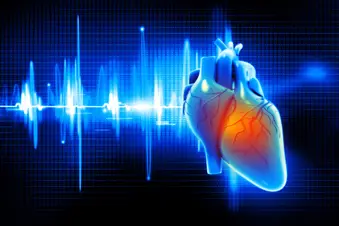
Because you have rheumatoid arthritis (RA), it’s extra important to take care of your heart. RA makes you more likely to get heart disease or have a heart attack. But you can lower your chances.
Take these simple steps:
- If heart disease runs in your family, tell your doctor.
- Don't smoke.
- Eat a diet rich in fruits, vegetables, low-fat protein (like poultry, fish, beans, nuts, seeds, and low-fat dairy), and whole grains.
- Limit salt and saturated fats.
- Avoid foods made with trans fats. (Check the label for “partially hydrogenated” ingredients.)
- Get plenty of physical activity. Ask your doctor if there are any limits on what you can do.
- Keep up with your checkups and tests for conditions that affect your heart, including high blood pressure, diabetes, and high cholesterol.
- Stay at a healthy weight.
The Inflammation Connection
Inflammation is a major part of RA. It's also linked to heart disease and the chance of having a heart attack.
Some experts think the inflammation in RA may raise inflammation throughout the body, including in the coronary arteries, which supply blood to your heart.
Check on Your Heart’s Health
You won’t necessarily know if you have heart disease (or conditions that add to your risk, such as high blood pressure, diabetes, and high cholesterol). So keep up with your checkups in general, as well as taking care of your RA.
Ask your doctor how often you should get your blood pressure, cholesterol, and blood sugar checked.
Lifestyle Changes
You’ll help manage your RA and benefit your heart by making changes in these areas:
Being active. Exercise is good for your whole body, including your most important muscle: your heart. Although joint pain from rheumatoid arthritis may mean you want to avoid high-impact activities like running, there are other options, such as biking, swimming, water aerobics, or brisk walking. Work your way up to 30 minutes a day, 5 days a week. If you’re not active now, start with a little bit and gradually lengthen your workouts when you can do more.
It really does pay off. Several studies have shown better blood pressure, BMI (body mass index), and milder RA in those who took part in aerobic and resistance training.
Weight. If you’re obese (meaning that your BMI is 30 or greater), losing some of the extra pounds may lower your risk of getting heart disease. It would also take some of the pressure off your joints.
Smoking. It’s bad for your heart and can also worsen RA. It can be hard to quit, so ask your doctor what would help kick this habit.
Are Your Meds on Track?
Ask your doctor if your RA medicines may make you more likely to get heart disease. Ask what you can do to manage that risk.
Your doctor can help you decide if your medications and doses are right for your heart health. If you have other conditions that raise your odds of having heart disease -- such as high cholesterol, diabetes, or high blood pressure -- they may prescribe other drugs as well as lifestyle changes.
Show Sources
Photo Credit: HYWARDS / Getty Images
SOURCES:
American College of Rheumatology: "Rheumatoid Arthritis."
Arthritis Foundation: "Rheumatoid Arthritis and Heart Disease."
Arthritis Today: "RA and Heart Disease: What You Need to Know."
The Johns Hopkins Arthritis Center: "Rheumatoid Arthritis Treatment."
CDC: “Rheumatoid Arthritis (RA).”
Current Rheumatology Reports: “Managing cardiovascular disease risk in rheumatoid arthritis: clinical updates and three strategic approaches.”
